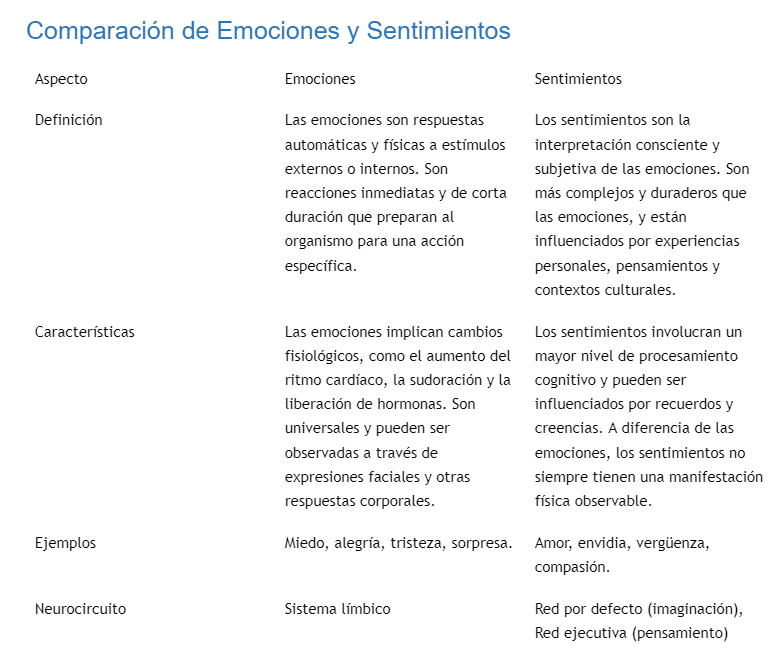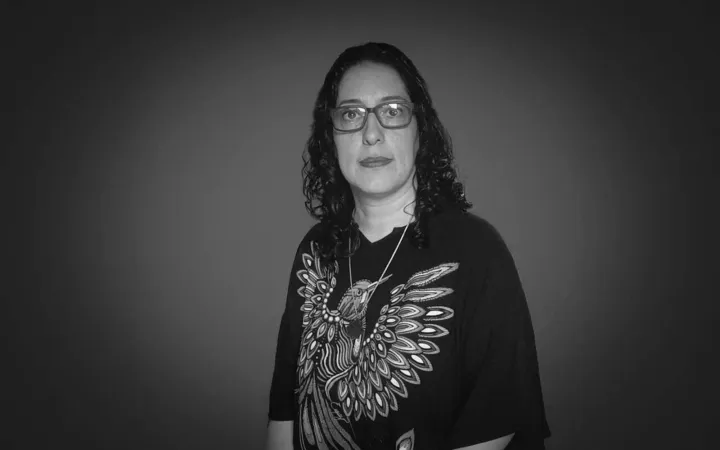
Por Sofía Díaz Pizarro
Cuando salió la primera película de "Intensamente", mi hija aún era una niña pequeña, una toddler. Me podía relacionar con todo lo que la película mostraba: la importancia de las emociones primarias, permitirnos sentir la tristeza y entender que cada emoción tiene un rol fundamental en nuestra vida. Ahora, en la segunda parte, mi hija está por entrar a la preadolescencia. La película llega en un momento crucial, ya que nuestros hijos se enfrentan a una gama más compleja de emociones y situaciones que las presentadas en la primera película.
Mi historia personal con las emociones
Solía tenerles pánico a los niños. En mis 20's, aseguraba que no sería mamá. Si veía a un bebé llorar o a un toddler en pleno berrinche, salía corriendo. Había algo en estos seres tan crudos, tan reales en sus emociones, que me causaba una contracción tremenda; hoy sé que era pánico a sentir esas emociones.
Recuerdo un día con mi hija de bebé, seguramente de menos de 2 meses, que me pregunté: pero ¿qué vas a enseñarme tú a mí, cosita hermosa, si dependes de todo de mí?" Lo pregunté con duda y con intriga, sabiendo que me había adentrado a un mundo interno, ese al que tanto miedo le tenía.
Hoy sé que ser mamá me ha enseñado a conocerme y entenderme. Es un proceso misterioso cuando sabes que no quieres repetir las creencias o maneras de educar que te lastimaron, mezclado con el inmenso amor que se puede sentir como madre. Es una posición mágica que nos lleva a buscar ser mejores, a sanar, a crecer. En ese camino, que yo llamo "educación consciente", he aprendido tanto. Con cada etapa de mi hija surge una nueva oportunidad de ampliar mi conciencia, de ver hacia dentro para conocerme mejor.
Una de las cosas imprescindibles para este andar de autoconocimiento en la vida, ya sea como mamá, papá, adolescente o empresario, es decir, siendo humano, es aprender sobre las emociones humanas y sobre los sentimientos. ¿Qué no son lo mismo? No, y saber la diferencia es una enorme herramienta que te servirá toda tu vida para entenderte y conocerte mejor a ti mismo y para tus relaciones humanas, ya sean familiares, personales o laborales.
Emociones y Sentimientos en "Intensamente":
En "Intensamente", vemos cómo algunas de las emociones primarias, representadas por los personajes Alegría, Tristeza, Miedo, Desagrado e Ira, juegan un papel crucial en la vida de Riley, la protagonista. Estas emociones son reacciones inmediatas a situaciones específicas y preparan a Riley para actuar de ciertas maneras.
• Emociones: Las emociones son respuestas automáticas y físicas a estímulos externos o internos. Son reacciones inmediatas y de corta duración que preparan al organismo para una acción específica. Las emociones son reacciones psicofisiológicas a estímulos externos o internos. En la película, Alegría busca mantener a Riley feliz, Miedo busca protegerla, mientras que Tristeza, aunque inicialmente incomprendida, muestra que todas las emociones tienen un propósito importante.
• Sentimientos: Los sentimientos son la interpretación consciente y subjetiva de las emociones. Son más complejos y duraderos que las emociones, y están influenciados por experiencias personales, involucran un mayor nivel de procesamiento cognitivo y pueden ser influenciados por recuerdos y creencias Por ejemplo, después de un evento triste, como la pérdida de un amigo, Riley puede sentir tristeza (emoción) que se convierte en una sensación de soledad (sentimiento) que perdura.
Diferencias Clave:
1. Duración: Las emociones, como la reacción inmediata de Alegría o Ira en la película, son breves y transitorias. Los sentimientos, como el sentimiento prolongado de nostalgia que Riley experimenta al recordar su vida en Minnesota, pueden durar mucho más tiempo porque permanecemos en el pensamiento.
2. Origen: Las emociones son reacciones automáticas a estímulos externos o internos. Los sentimientos son la interpretación consciente y subjetiva de las emociones.
3. Función: Las emociones, como las rápidas reacciones de Desagrado ante algo que no le gusta a Riley, nos preparan para reaccionar rápidamente a diferentes situaciones. Los sentimientos, como el desarrollo del sentimiento de pérdida que Riley siente al mudarse, nos ayudan a procesar y dar sentido a esas emociones a lo largo del tiempo.
4. Consciencia: Las emociones son instintivas y no debemos de controlarlas, sino permitir que fluyan idealmente, conscientemente, mientras que los sentimientos involucran un mayor nivel de procesamiento cognitivo y pueden ser influenciados por recuerdos y creencias y pueden modificarse al ser conscientes de ellos.
Ejemplo práctico:
Recuerda una memoria de cuando un ser querido falleció, ¿puedes sentir la tristeza que trae ese recuerdo? Y si imaginas que una persona amada en tu vida actualmente muere de repente, ¿puedes sentir todas las emociones que se despiertan: ansiedad, tristeza, pérdida, decepción, etcétera? Estos son sentimientos: memorias que reflejan aspectos de experiencias emocionales pasadas. Las emociones son las experiencias en el momento presente que estás teniendo. Son sensaciones sin palabras que pronto desaparecerán después de que ocurra el evento real.
La Importancia del Mindfulness
¿Por qué creo que esto es tan importante? Porque una emoción básica (miedo, disgusto, lujuria, enojo, alegría, sorpresa) dura poco, típicamente unos pocos segundos a minutos. Así como surgen, se van. Un sentimiento, en cambio, necesita de nuestra participación para formarse y podemos aferrarnos a ellos durante horas o días y ese sentimiento crea nuestra experiencia de vida. Sin embargo, así como podemos aferrarnos a ellos y repetirlos una y otra vez, también podemos elegir no hacerlo, soltarlas reescribiendo una nueva narrativa, esa es nuestra decisión y nuestro poder de crear nuestra realidad.
¿Es fácil? Tan fácil o difícil como elijas creerlo, pero como todo, la práctica hace al maestro. Si empezamos a usar nuestro poder para soltar lo que no nos sirve y elegir lo que sí, en este caso, lo que pensamos de nuestras emociones, entonces estamos activamente manifestando conscientemente lo que sí queremos.
¿No te apasiona lo poderosa que eres? ¿Y si empezamos a enseñar este súper poder a nuestros hijos, a la siguiente generación, qué maravillas manifestarán en su vida?
Ansiedad: ¿Emoción o Sentimiento?
Ansiedad, un personaje tan importante en "Intensamente 2" y en nuestra época, ¿es un sentimiento o una emoción? De eso vamos a hablar en la siguiente columna así como de técnicas basadas en la ciencia del cerebro para disminuirla. ¡Nos vemos pronto!

Sofía Díaz Pizarro
Sofía Díaz Pizarro es NeuroCoach, especialista en Mindfulness y Transformación Personal con más de 25 años de experiencia. Es creadora del método Maternidad y Paternidad Consciente® (MPC): educar con amor y respeto incondicional y de NeuroMindfulness® (NM): la ciencia de la espiritualidad. Es directora y productora de www.sofiadiaz.tv, donde brinda contenido informativo y de calidad para estimular un vínculo mayor entre mamá, papá e hijo.
Conferencista Internacional en Educación Consciente, NeuroMindfulness: el Poder Transformativo del Amor y la Conciencia, y el Poder de la Mujer en Crear un Nuevo Mundo. También es creadora de la campaña pro-lactancia Darle Pecho es tu Derecho®.
Formación Académica:
• Estudios en Neurociencia en la Universidad de Harvard- eDx y Educación Infantil.
• Máster en Programación Neurolingüística.
• Health Coach certificada por IIN.
• NeuroCoach certificada por el Mark WaldmanInstitute.
Escritora del libro Repetir o Reescribir, disponible en Amazon.
Comparación de Emociones y Sentimientos

Las opiniones expresadas son responsabilidad de sus autoras y son absolutamente independientes a la postura y línea editorial de Opinión 51.






Comments ()